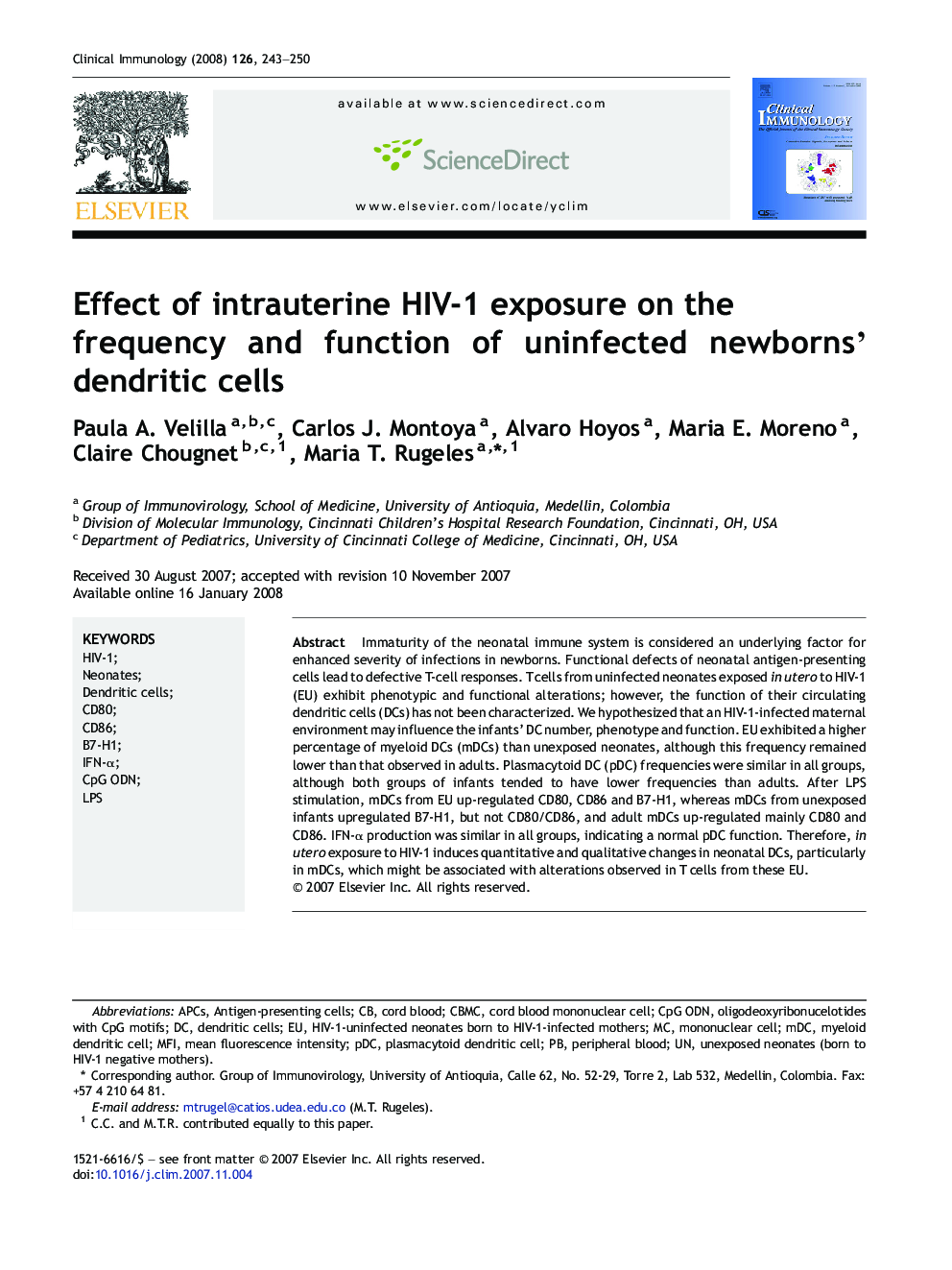| Article ID | Journal | Published Year | Pages | File Type |
|---|---|---|---|---|
| 3258474 | Clinical Immunology | 2008 | 8 Pages |
Immaturity of the neonatal immune system is considered an underlying factor for enhanced severity of infections in newborns. Functional defects of neonatal antigen-presenting cells lead to defective T-cell responses. T cells from uninfected neonates exposed in utero to HIV-1 (EU) exhibit phenotypic and functional alterations; however, the function of their circulating dendritic cells (DCs) has not been characterized. We hypothesized that an HIV-1-infected maternal environment may influence the infants’ DC number, phenotype and function. EU exhibited a higher percentage of myeloid DCs (mDCs) than unexposed neonates, although this frequency remained lower than that observed in adults. Plasmacytoid DC (pDC) frequencies were similar in all groups, although both groups of infants tended to have lower frequencies than adults. After LPS stimulation, mDCs from EU up-regulated CD80, CD86 and B7-H1, whereas mDCs from unexposed infants upregulated B7-H1, but not CD80/CD86, and adult mDCs up-regulated mainly CD80 and CD86. IFN-α production was similar in all groups, indicating a normal pDC function. Therefore, in utero exposure to HIV-1 induces quantitative and qualitative changes in neonatal DCs, particularly in mDCs, which might be associated with alterations observed in T cells from these EU.
